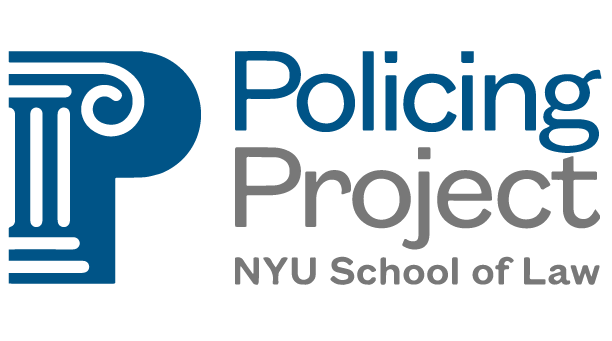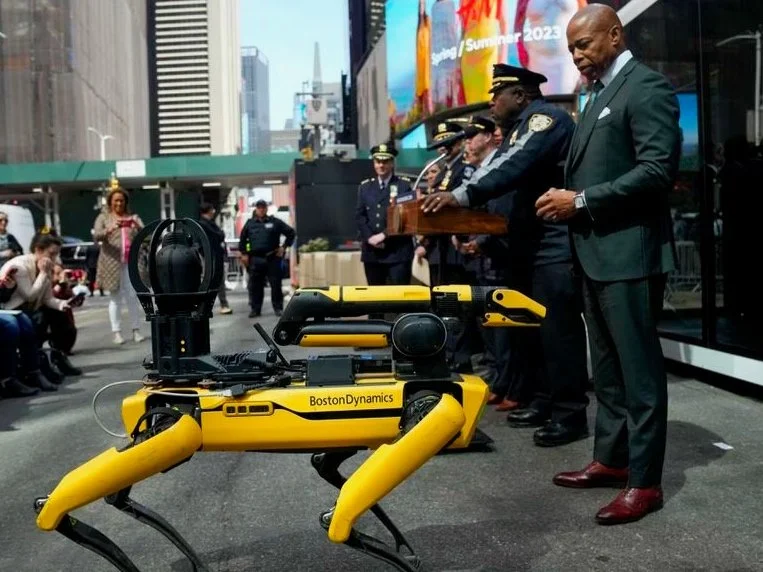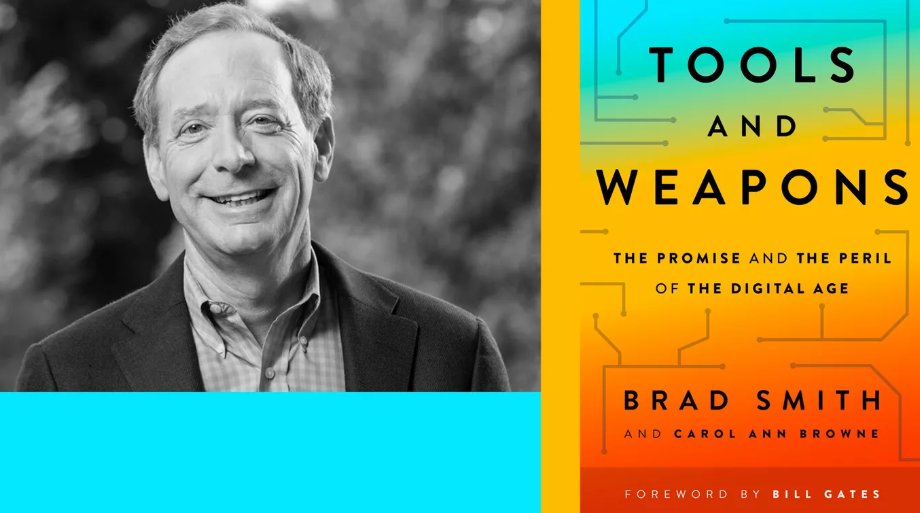Police officers in the U.S. pull over at least 50,000 drivers every day, making the traffic stop the most common interaction between the public and police. But despite the frequency, there is a lot we don't know about stops and their effects, in part because stop data collection laws are not mandated in most states, and even when they do exist, the laws are far from perfect.
Policing Project Five-Minute Primers: Iris Recognition
In the second blog in our new series exploring the use of biometrics, we take a look at iris recognition, a technology being deployed nationwide – from the Southern border to Massachusetts –but one that has yet to see the news coverage and public discussion that have surrounded other high-profile biometric technologies.
Microsoft President Brad Smith visits Policing Project to talk the future of tech and democratic accountability
How should private companies, governments, and the public address concerns posed by new technologies, such as the loss of privacy, perpetuation of racial injustice, or the prospect of widespread government surveillance? Microsoft President Brad Smith recently visited NYU Law for a discussion of these issues and the new book “Tools and Weapons: The Promise and the Peril of the Digital Age.”
Policing Project welcomes new fellows for 2019-2020 academic year
Join us for a conversation with Microsoft President Brad Smith, Sept. 13 at NYU
Technology has drastically shaped our society and our lives, with equal potential for both incredible good and devastating harm. Join us for a conversation with Brad Smith, President of Microsoft, to discuss his newly released book, Tools and Weapons: The Promise and the Peril of the Digital Age, in the context of policing technology, with special emphasis on the ethics of AI, privacy legislation and the need for regulation on facial recognition.
Policing Project drafts innovative new use of force policy for Camden
Facial Recognition: Q&A between a policy advocate and an AI practitioner
Policing Project Five-Minute Primers: Face Recognition
The Policing Project’s new blog series explores one of the more complex—and rapidly changing—areas of policing: the use of biometric technologies. For our first blog in this series, we explore face recognition, covering some common questions like, “How are police using this technology?” and “How does the technology work?”
Policing Project conducts privacy audit of ShotSpotter gunshot detection technology
Reflections from South Africa
Albany in transition: Tackling important questions with ACPAC
Policing Project staff explore evidence-based policing in new editorial for Just Security
How do we know what works in policing and what doesn’t? Often, the answer is, “We don’t.” As Policing Project Faculty Director Barry Friedman and extern Kate Mather explain in a new editorial for Just Security, evidence-based policing is still a niche approach struggling to find its place in mainstream law enforcement.
Leading producer of police body cameras agrees to keep face recognition off its products
In a report produced with the Policing Project, Axon’s AI and Policing Technology Ethics Board concluded that face recognition technology is not yet reliable enough to justify its use on body-worn cameras, and expressed particular concern regarding evidence of unequal and unreliable performance across races, ethnicities, genders and other identity groups.
Graduation Day: Wrapping Up Our Year in Camden with a Field Trip to the Police Academy
Policing Project’s Regina Holloway Selected as 2019 Atlantic Fellow for Racial Equity
Phoenix advisory groups create 'conduits' for police-community relations
Oakland Prioritizes Front-End Accountability on Privacy and Surveillance
While many cities are dealing with complications associated with new and emerging technology, state surveillance has a special historic significance in Oakland, California, where privacy advocates have successfully established a formal entity with the teeth to ensure public oversight of the use of surveillance tech.

























